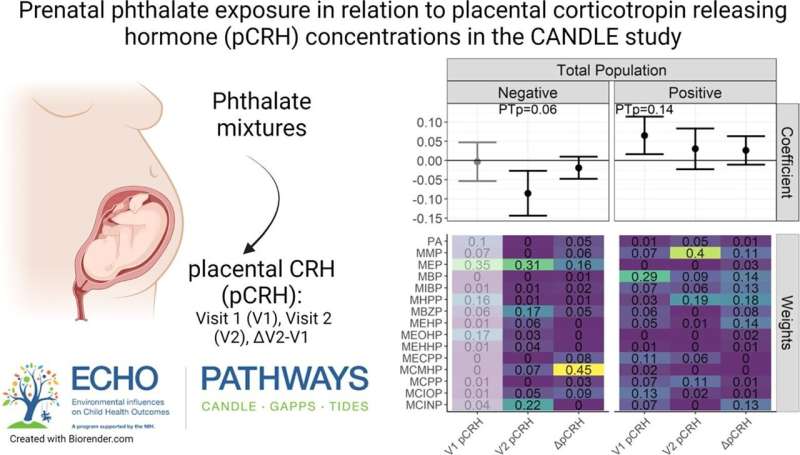
Exposure to phthalates—a group of chemicals found in everything from plastics to personal care products to electronics—may disrupt an important hormone needed to sustain a healthy pregnancy, according to a Rutgers study.
The study, which appears in Environment International, was among the first to examine the impact that phthalates, added to plastics to increase flexibility, have on the placental corticotropin releasing hormone (pCRH) that is produced by the placenta and increases throughout the course of pregnancy. The hormone plays an important role in promoting the onset of labor, but when levels are high or rise rapidly earlier in pregnancy, it may contribute to preterm birth and fetal growth problems as well as high blood pressure, diabetes, and postpartum depression.
“We are all exposed to phthalates in our environment through the products we use and the foods we eat,” says Emily S. Barrett, an associate professor at the Rutgers School of Public Health and member of the Environmental and Occupational Health Sciences Institute. “Our findings show that these chemicals may alter the production of essential placental hormones, which has important implications for the course of pregnancy as well as subsequent child health and development.”
The researchers analyzed data from 1,018 low-risk pregnant women carrying single fetuses at two time points, mid- and late pregnancy.
They found that the presence of various phthalates was associated with higher pCRH hormone levels in mid-pregnancy, but lower pCRH later in pregnancy. These levels were strongest in women who developed pregnancy complications like gestational diabetes and high blood pressure, suggesting that women who develop complications may be particularly vulnerable to this hormonal disruption. This is among the first and largest study so far to examine how these chemicals and the connection with pCRH disrupt the function of the endocrine system, which is especially delicate during pregnancy.
“Associations between phthalates and pCRH among women with pregnancy complications grew stronger across the course of pregnancy. We know very little about how women with pregnancy complications are affected by environmental exposures. This study sets the stage for future research in that area,” Barrett said.
Source: Read Full Article